
fill
Create an array of a certain size with a default value.| Parameter | Purpose | Example |
|---|---|---|
| parent value | The default value to fill | ”default value” |
| start | The starting index of the array | 0 |
| length | The number of items in the array | 10 |
Examples
- Example
- Result
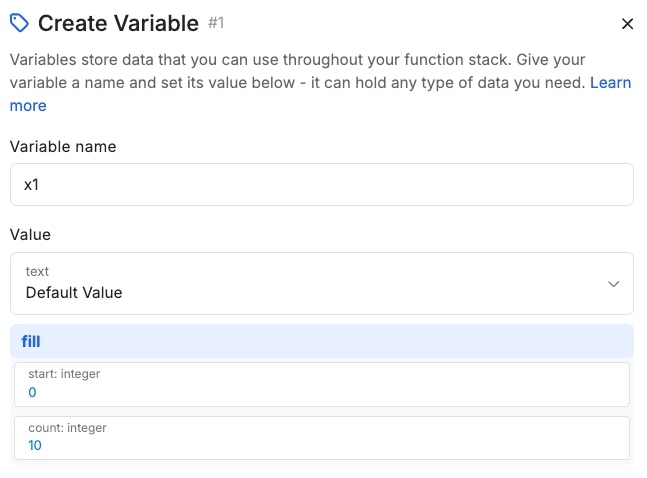
fill_keys
Creates an object of a certain size with a default value and a list of keys.| Parameter | Purpose | Example |
|---|---|---|
| parent value | The default value to fill | ”default value” |
| keys | The array of keys to use | [ "key1", "key2", "key3"] |
Examples
- Example
- Output
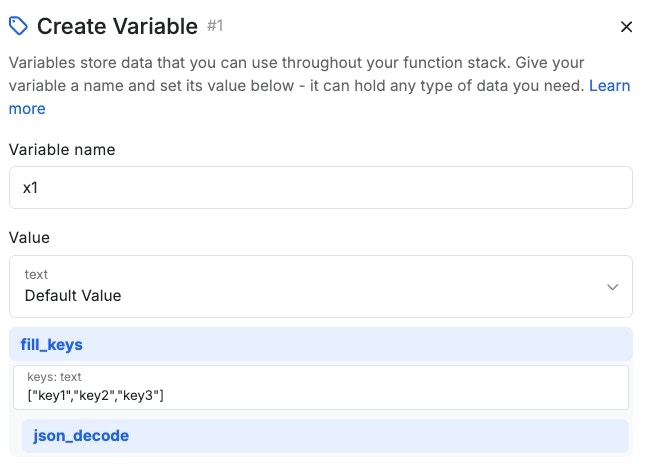
first_notempty
Applies the first value that is not empty (0, null, "", empty string) Useful if you need to determine a value to apply based on what is provided, such as editing a database record and being uncertain if an input will be provided to replace a value.| Parameter | Purpose | Example |
|---|---|---|
| parent value | The value to check if empty | Can contain any value, or no value. |
| value | The value to use if the parent value is empty | ”default” |
Examples
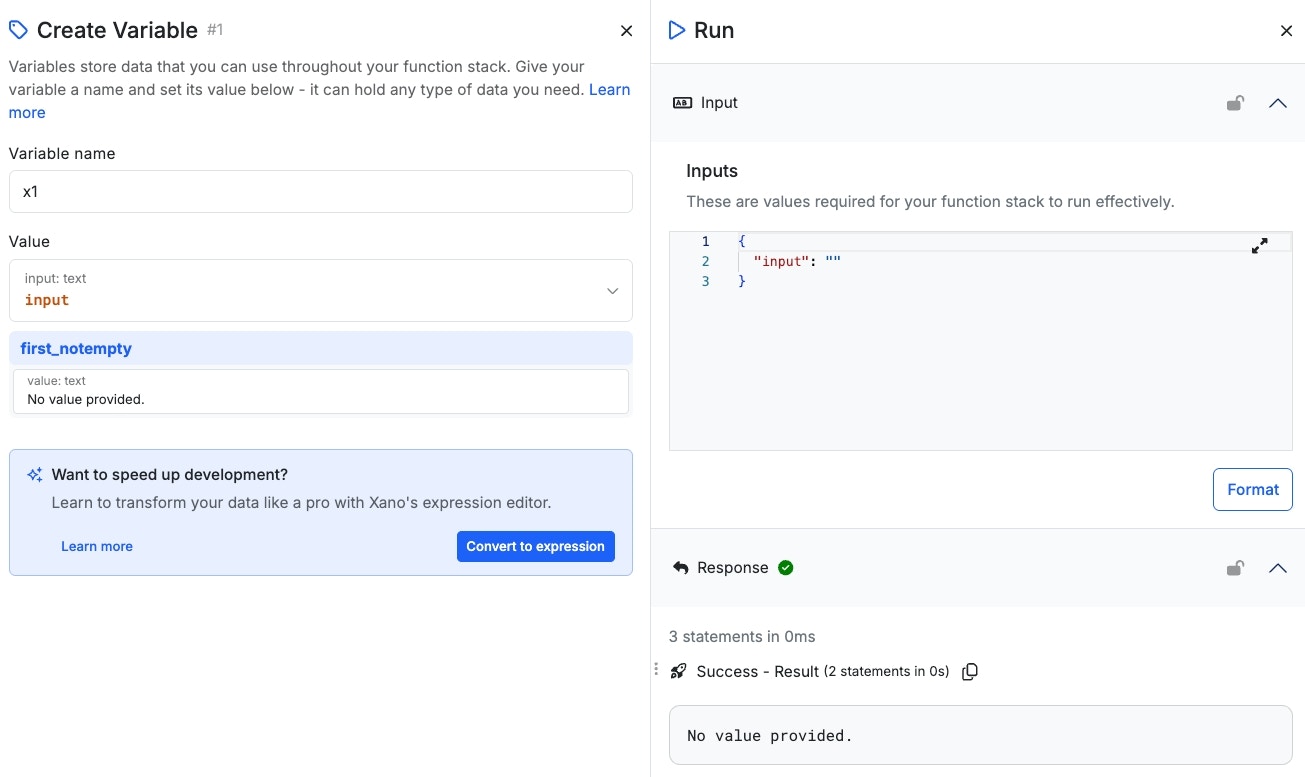
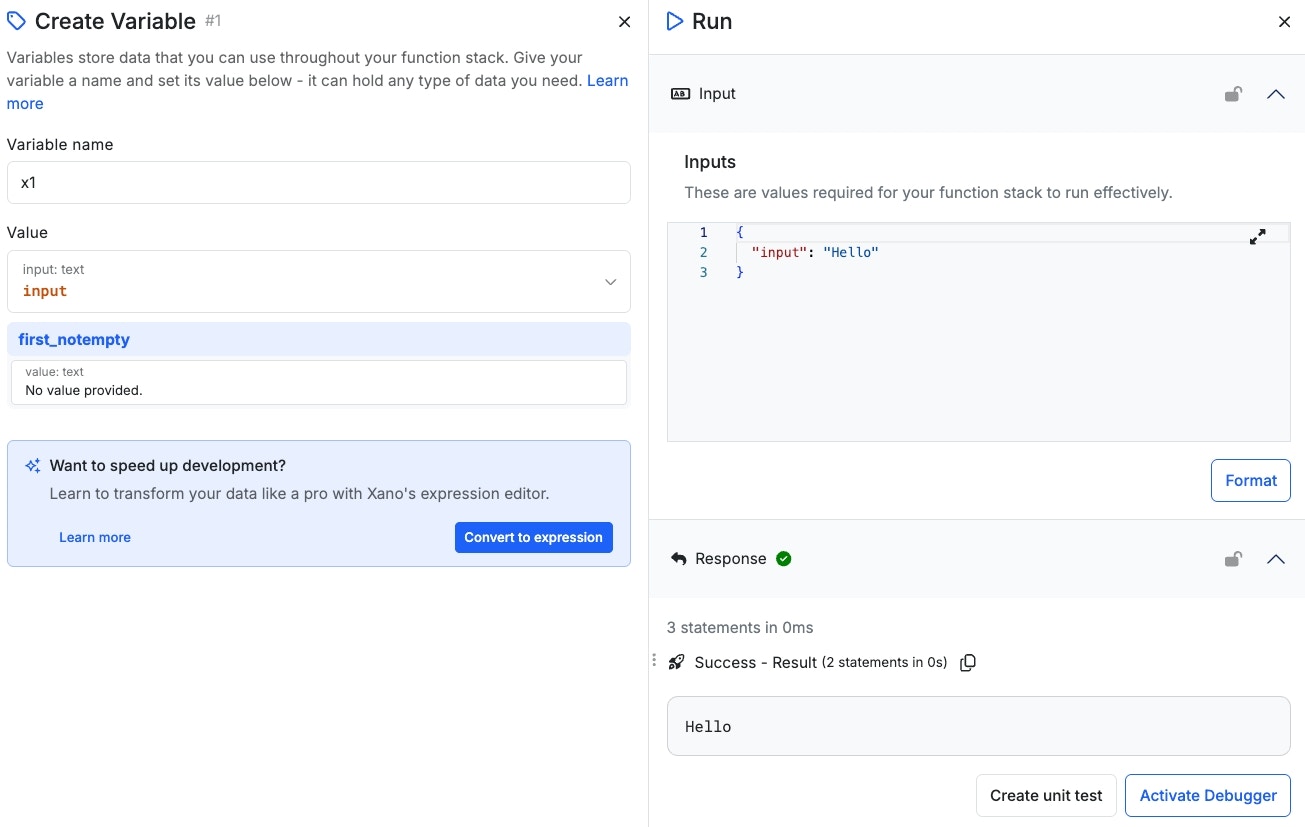
first_notnull
Applies the first value that is notnull
Useful if you need to determine a value to apply based on what is provided, such as editing a database record and being uncertain if an input will be provided to replace a value.
null is its own value entirely. It is not the same as “null”, an empty string, or any other similar empty state.| Parameter | Purpose | Example |
|---|---|---|
| parent value | The value to check if null | Can be any value |
| value | The value to use if the parent value is null | ”default” |
Examples
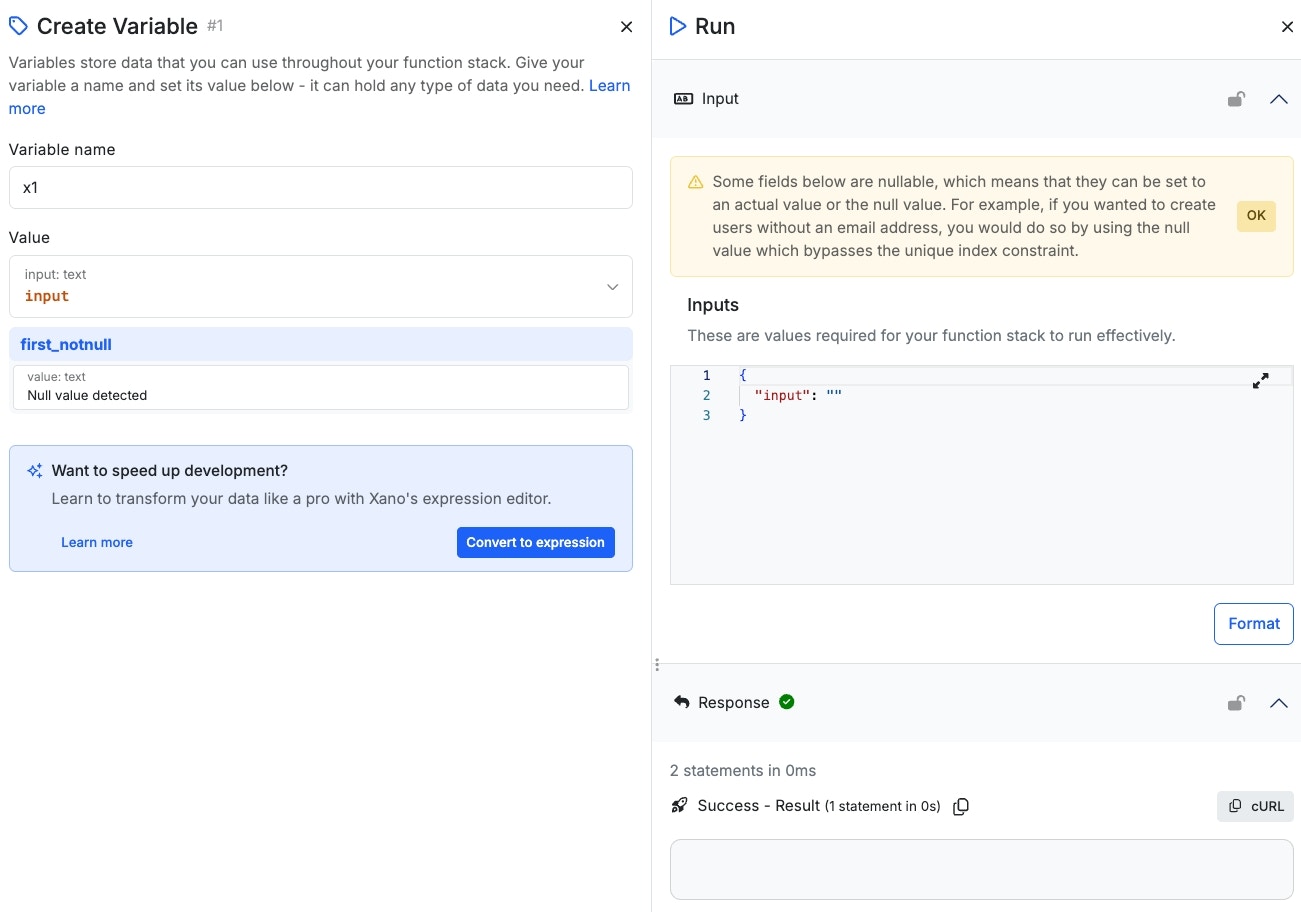
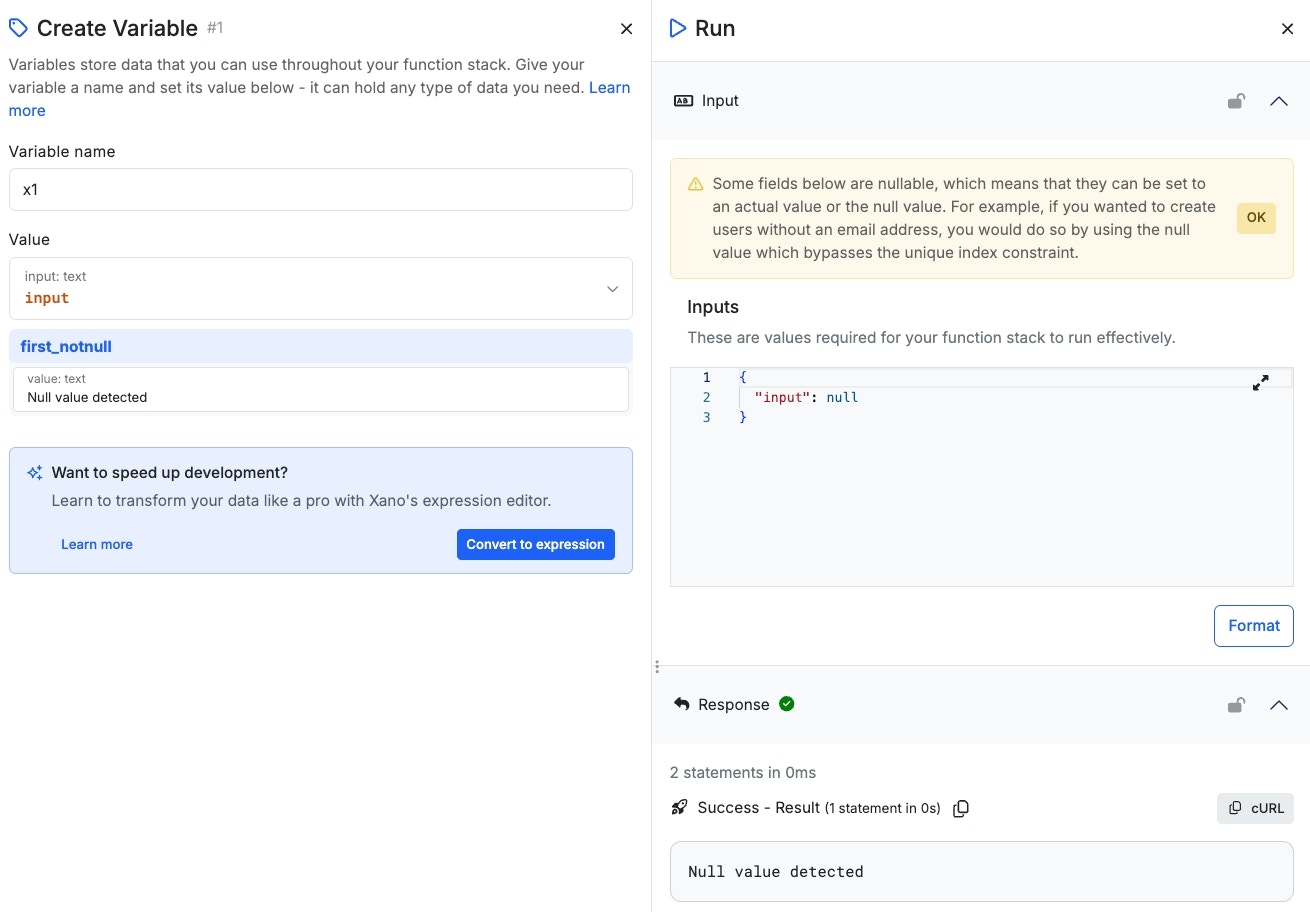
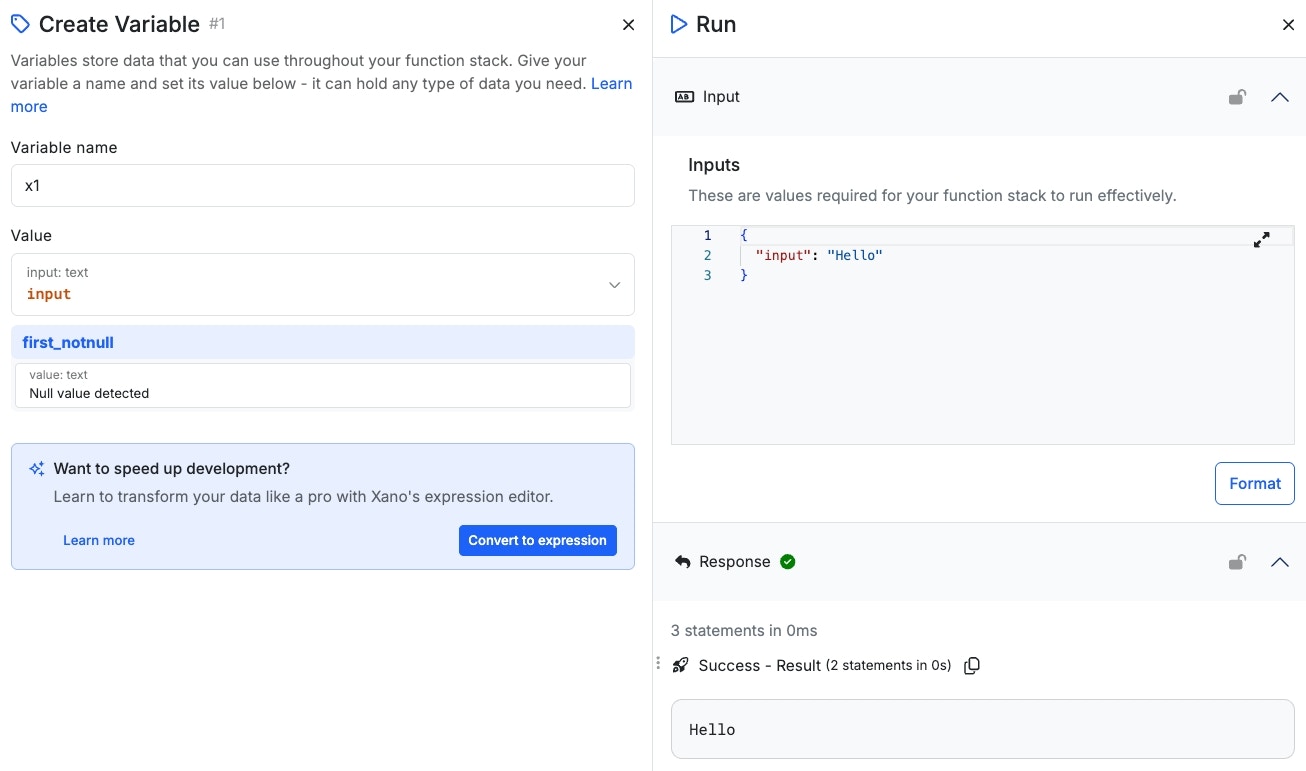
get
Gets a value at the specified path inside of an array or object. For arrays, the path can be an index, such as0, 1, or 2, which will get the specific item at that index in the array.
For arrays of objects, you can specify the index + a path, such as 2.name
For single objects, you can just specify the path, such as name.
This filter is useful if you aren’t sure if the value you need will exist, and need to provide a default value in place of it.
| Parameter | Purpose | Example |
|---|---|---|
| parent value | The object or array to search for the value | This can be an object, array, a variable, or the result of one of the Get All Input functions [1] [2] |
| path | The path to look for inside of the parent value | For getting a specific array item: 0 For getting a specific path inside of an object: pathName For getting a specific path inside of an array of objects: 0.pathName |
| default value | The value to provide in place of the value that isn’t found | This value can be whatever you’d like. |
Examples
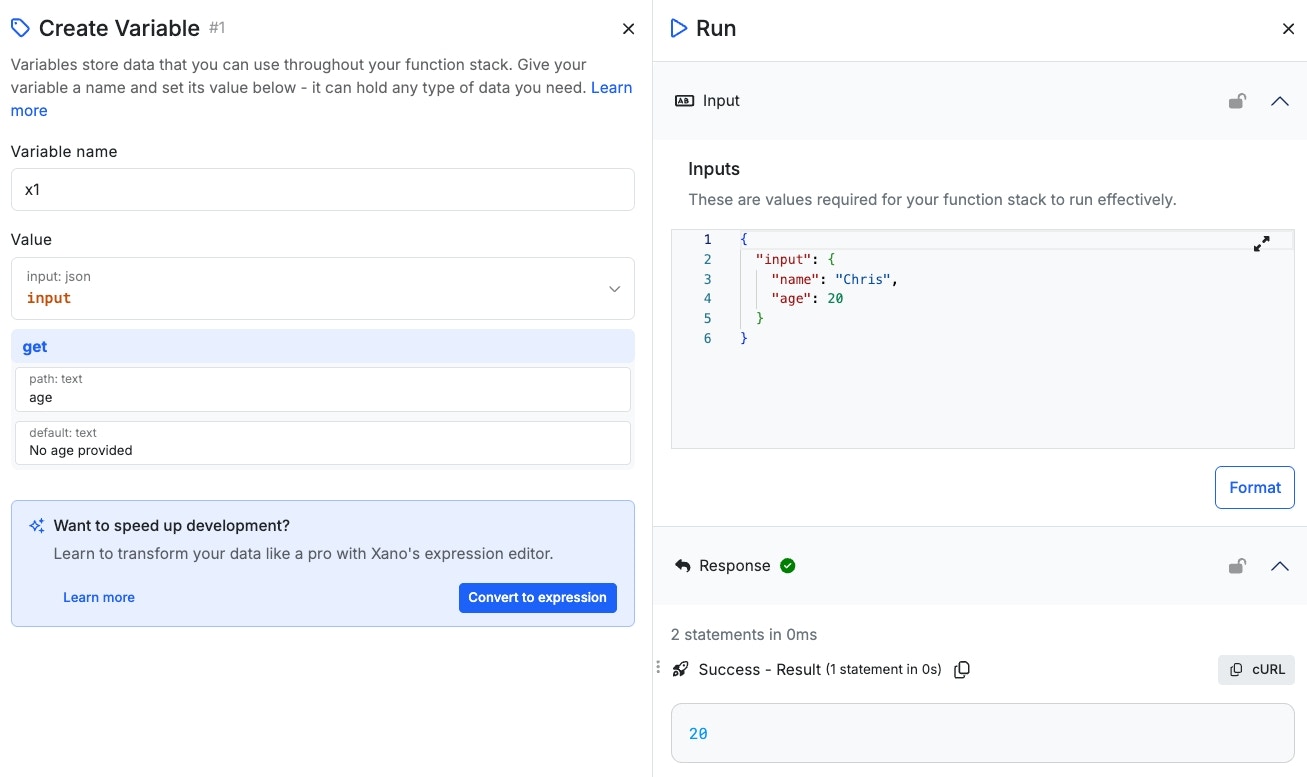
An age is provided in the input, so it is provided by the GET filter.
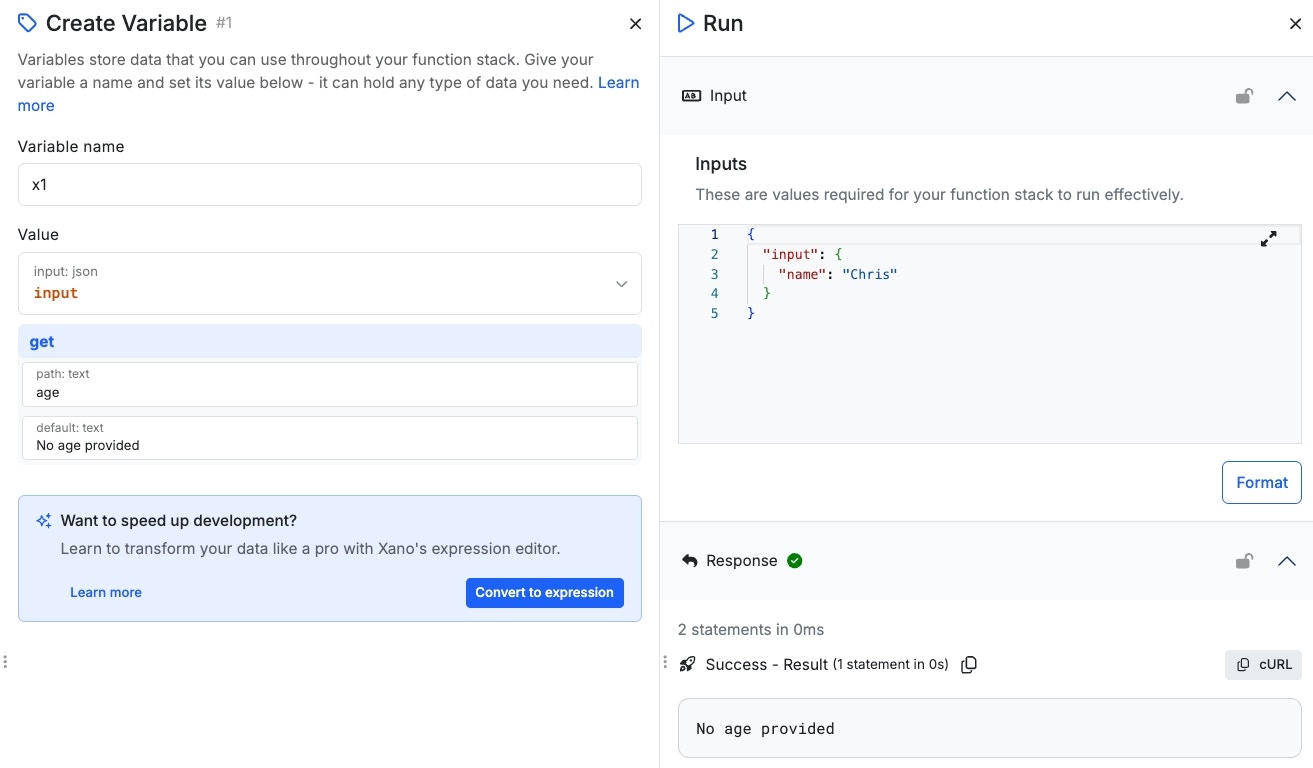
No age is provided in the input, so the default value is used instead.
has
Checks if a value is present (similar to get), but only returns a true or false.| Parameter | Purpose | Example |
|---|---|---|
| parent value | The object or array to search for the value | This can be an object, array, a variable, or the result of one of the Get All Input functions [1] [2] |
| path | The path to look for inside of the parent value | For getting a specific array item: 0For getting a specific path inside of an object: pathNameFor getting a specific path inside of an array of objects: 0.pathName |
Examples
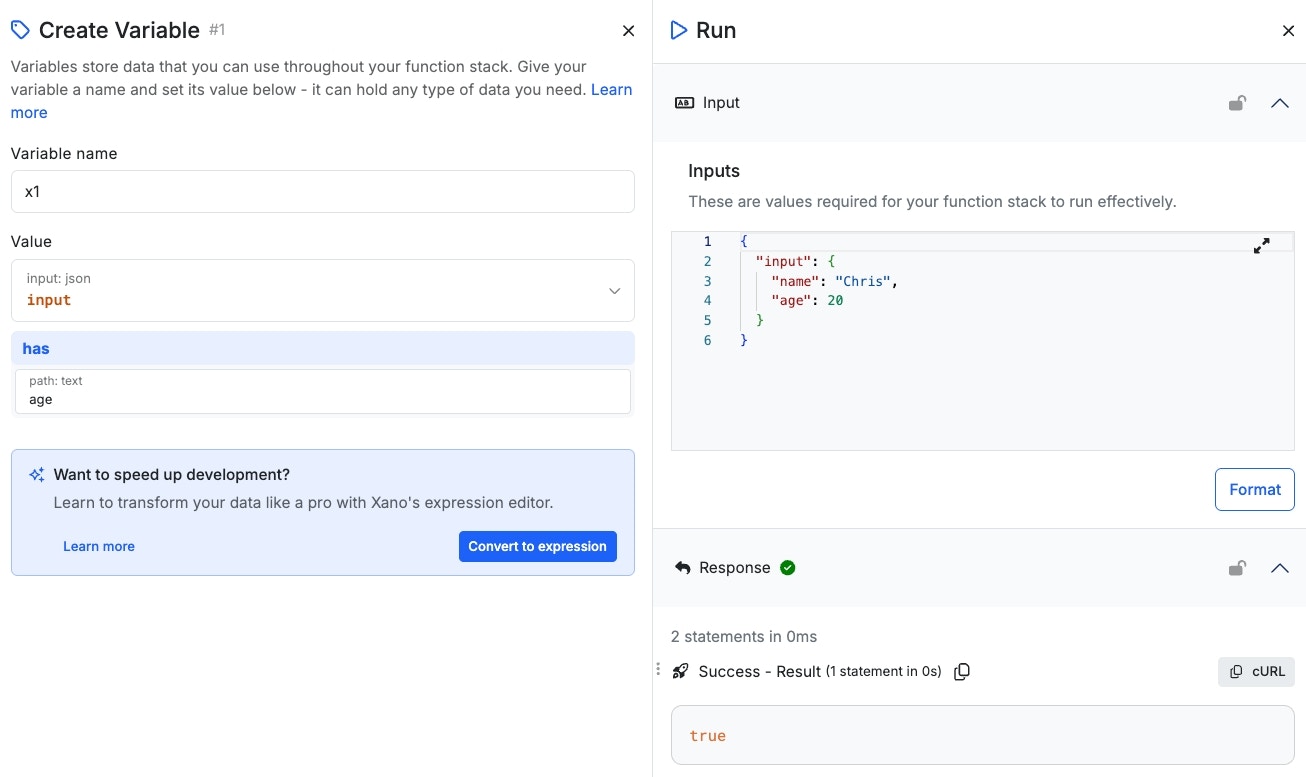
An age is provided, so the filter returns true
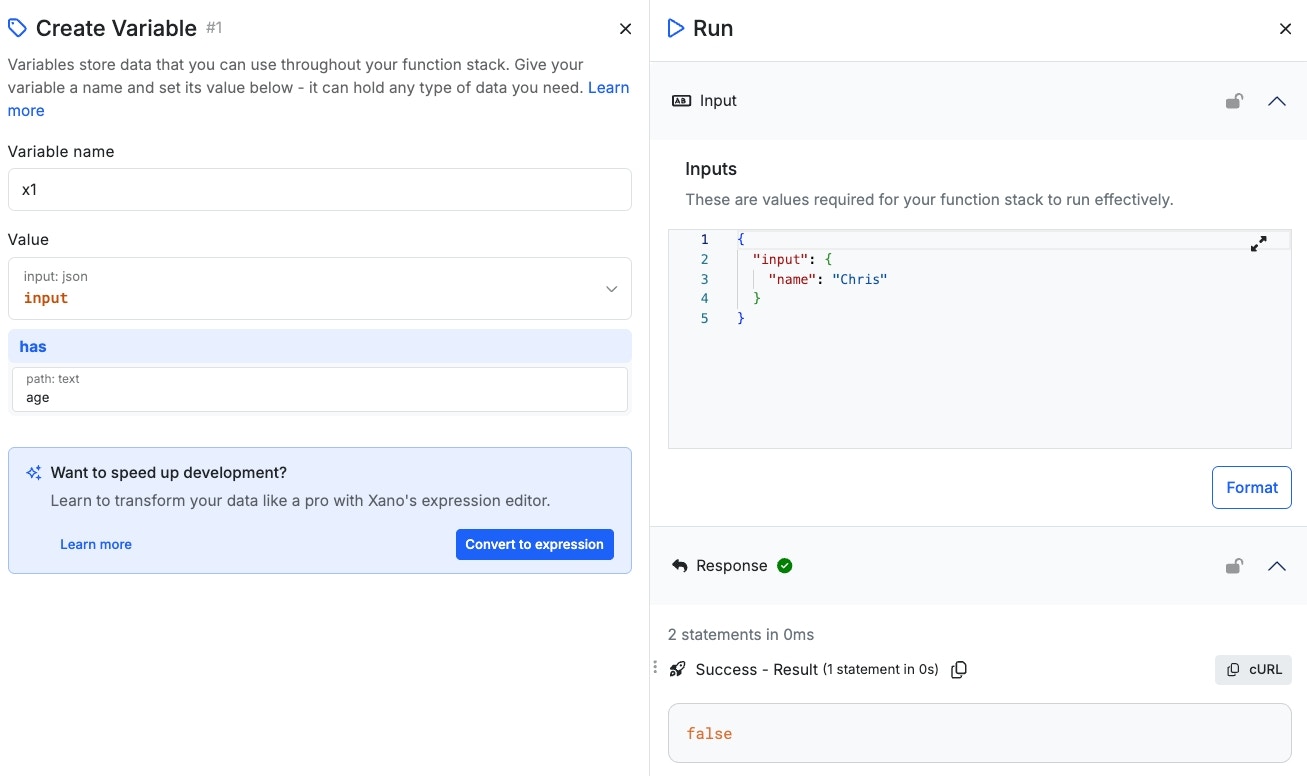
An age is not provided, so the filter returns false
set
Replaces or inserts new data at a specified path.| Parameter | Purpose |
|---|---|
| parent value | The object or array to target with the set filter |
| path | The path at which to insert the supplied value |
| value | The supplied value to use |
Examples
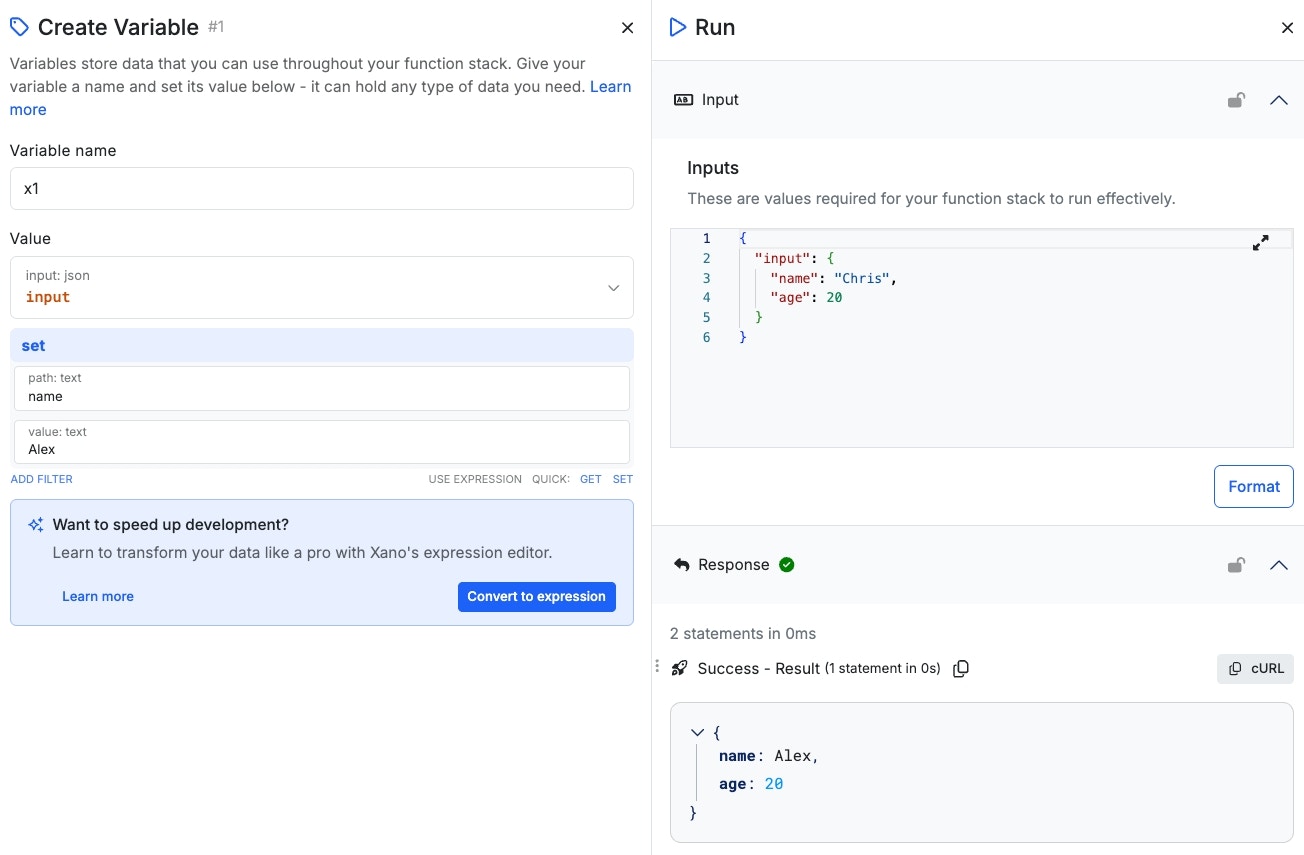
Replace a value with another
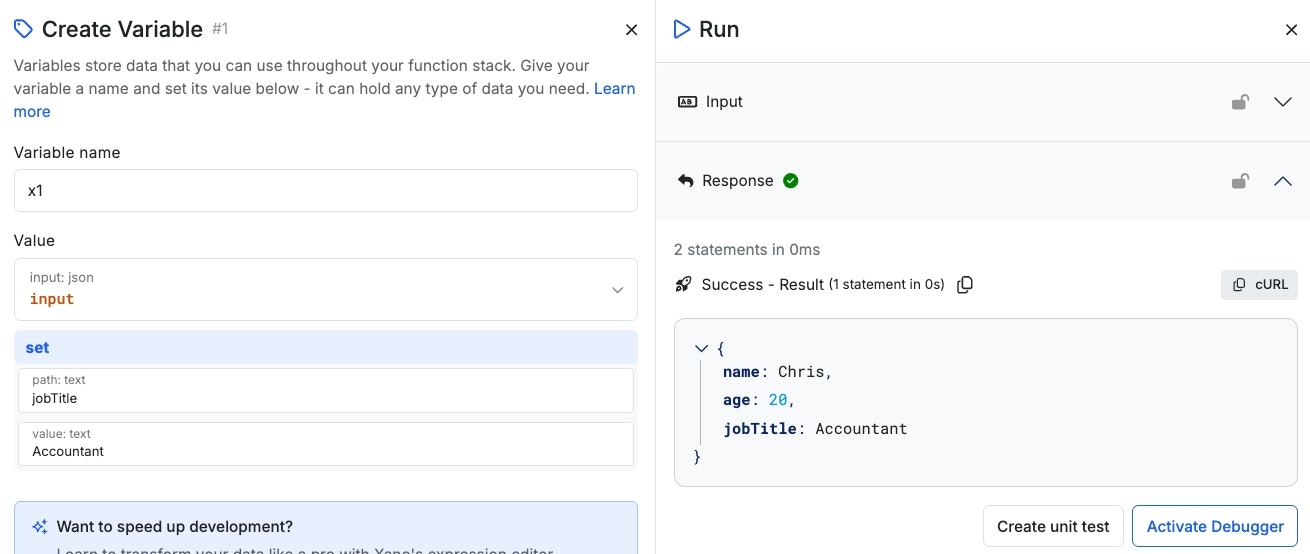
Set a new key inside of an object
set_conditional
Use set_conditional to set a new value in an object based on whether a condition evaluates as true.| Parameter | Purpose |
|---|---|
| parent value | The data to insert the result, such as an object |
| path | The path to insert the result |
| value | The value to insert at the specified path |
| conditional | The condition to check. This can either come from an earlier function,or another filter that returns a true or false |
Examples
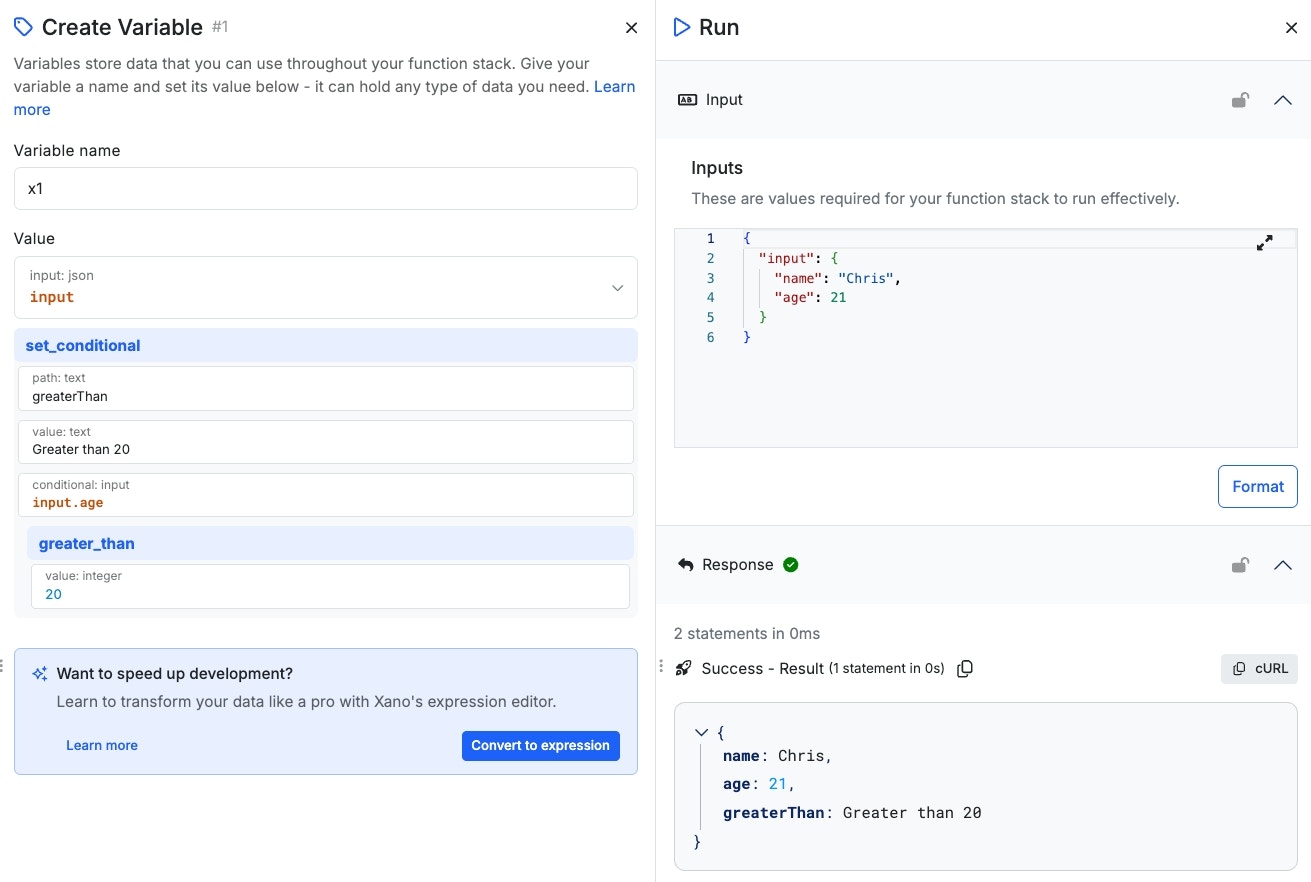
The age provided is greater than 20, so we return the value set in our set_conditional filter
set_ifnotempty
set_ifnotnull
Sets a new value in an object if the value provided is not empty. An empty value can be 0,null, or an empty string.
set_ifnotnull works the same, but only checks for null
| Parameter | Purpose | Example |
|---|---|---|
| parent value | Where to set the value | This will usually be an existing object |
| path | The path to set the value if the checked value exists | ”name" "age" "location” |
| value | The value to set if the checked value is not empty (or null) | Any value |
Examples
First, we're getting an existing record from the database.
Then, we use an Update Variable with set_ifnotempty (or set_ifnotnull) to determine whether or not the returned record needs to be updated.
Finally, we edit the record using the result of step 2 for all of our values.
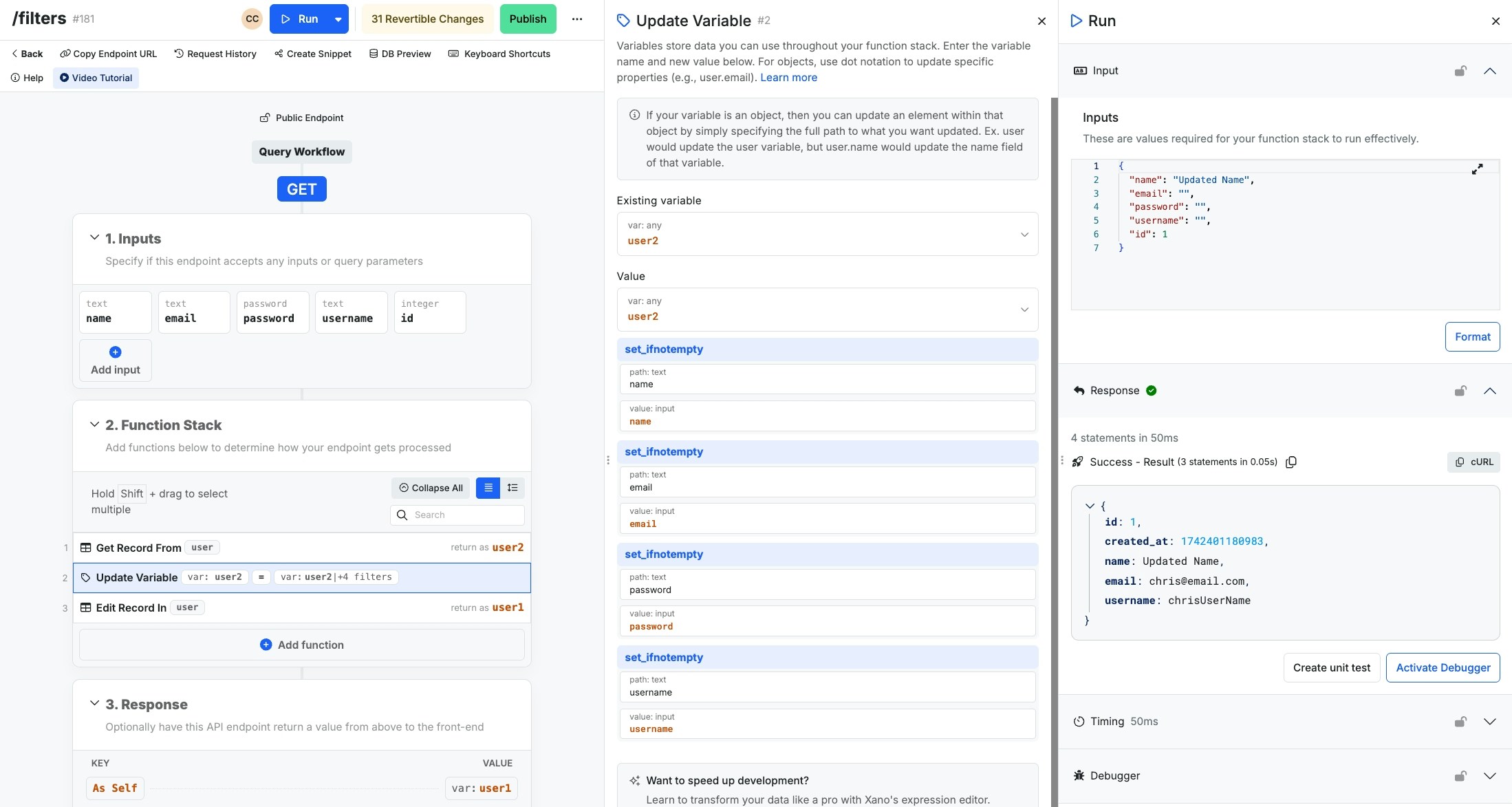
transform
Thetransform filter is universal way to transform data. It works with arrays, objects, and scalar values. It uses the expression data type to specify the transformation.
Hint
This filter is similar to the map filter, except it can bind to all data - not just an array. You can use the context variable $$ to target the parent value.| Parameter | Purpose | Example |
|---|---|---|
| parent value | The value to apply the transformation to | Can be any value or variable |
| expression | The expression to run | Any expression |
Examples
unset
Removes a key from an object| Parameter | Purpose |
|---|---|
| parent value | The object to target |
| path | The name of the key to remove from the object |
Examples
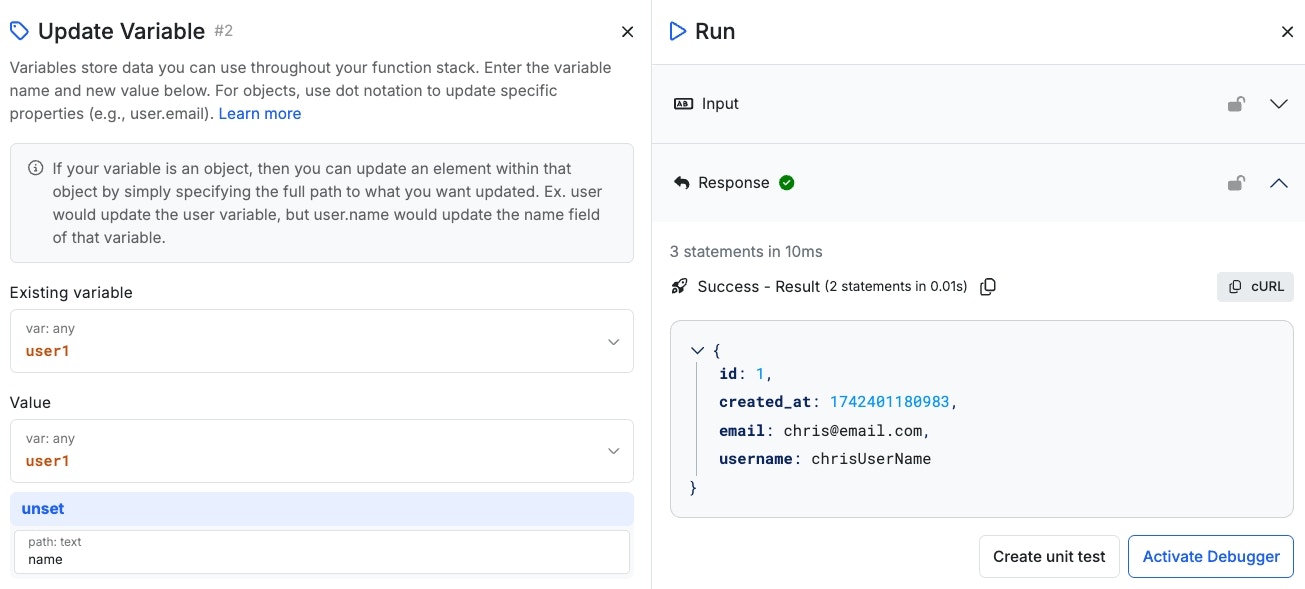
The user record normally returns a "name", but using unset has removed it.